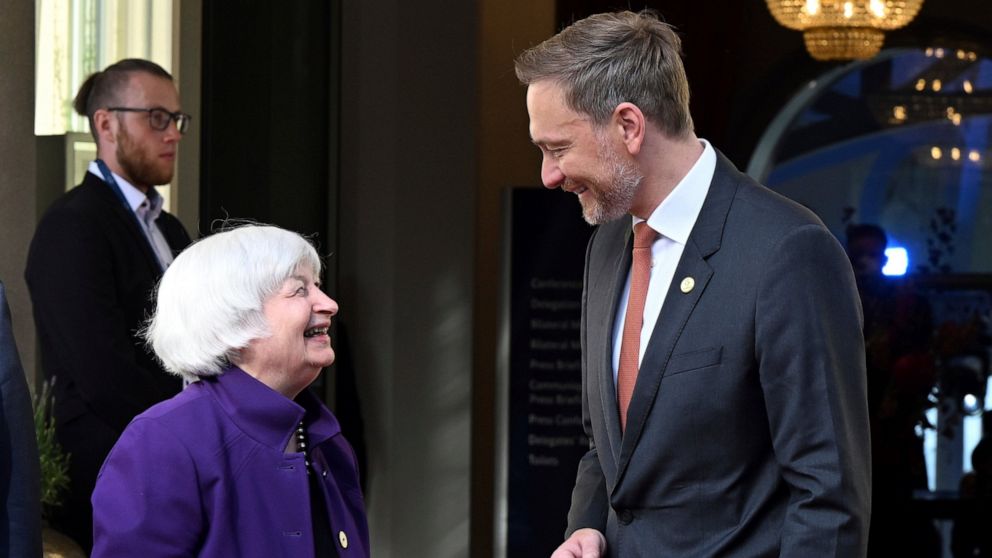G7 countries to provide $19.8 billion in aid to Ukraine
The Group of Seven leading economies agreed Friday to provide $19.8 billion in economic aid to Ukraine to ensure its finances do not hinder its ability to defend itself from Russia’s invasion
KOENIGSWINTER, Germany — The Group of Seven leading economies agreed Friday to provide $19.8 billion in economic aid to Ukraine to ensure its finances do not hinder its ability to defend itself from Russia’s invasion.
German Finance Minister Christian Lindner told reporters that $9.5 billion of the total amount was mobilized at meetings of the G-7 finance ministers in Koenigswinter, Germany, this week.
“We agreed that Ukraine’s financial situation must have no influence on Ukraine’s ability to defend itself successfully,” he said. “We need to do our utmost to end this war.”
Russia’s invasion touched on almost every topic of the finance ministers’ meetings this week, from the need to reduce reliance on Russian energy to reforming relationships between countries to maintain economic stability.
“Russia’s war of aggression is causing global economic disruptions, impacting the security of global energy supply, food production and exports of food and agricultural commodities, as well as the functioning of global supply chains in general,” a G-7 statement says.
U.S. Treasury Secretary Janet Yellen and other leaders spoke this week about the need for allies to put together enough additional aid to help Ukraine “get through” the Russian invasion.
“All of us pledged to do what’s necessary to fill the gap,” Yellen said Thursday as the ministers finished their first of two days of talks. “We’re going to put together the resources that they need.”
The International Monetary Fund’s latest world economic outlook says Ukraine’s economy is projected to shrink by 35% this year and next.
The finance ministers of the G-7 — which includes Canada, France, Germany, Italy, Japan, the United Kingdom and the U.S. — also have grappled with deepening inflation, food security concerns and other economic issues during their talks.
A communique marking the end of their meetings addressed commitments to addressing debt distress in low-income countries, trying to ease the fallout from the coronavirus pandemic and staving off inflation rates “that have reached levels not seen for decades.”
As the finance ministers were meeting in Germany, the U.S. overwhelmingly approved its own $40 billion infusion of military and economic aid for Ukraine and its allies. A portion of the U.S. funding was included in the G-7 package for Ukraine.
The United Kingdom committed $50 million toward Ukraine from the London-based European Bank of Reconstruction and Development, Treasury chief Rishi Sunak said.
“This comes on top of the $950m in loan guarantees that the UK has already committed to significantly scale up World Bank lending to the Government of Ukraine to help meet urgent fiscal need,” according to a news release from Sunak’s office.
This week was a rally for funds to Ukraine and those affected by the war.
Treasury and several global development banks announced Wednesday that they would spend tens of billions to work “swiftly to bring to bear their financing, policy engagement, technical assistance” to prevent starvation prompted by the war, rising food costs and climate damage to crops.
That money will be spent on supporting farmers, addressing the fertilizer supply crisis, and developing land for food production, among other issues.
Other issues of concern for G-7 finance leaders touched on the need for countries to increase scrutiny and regulation of cryptocurrency and other digital assets and streamlining pandemic responses.
———
Moulson reported from Berlin.
![]()


